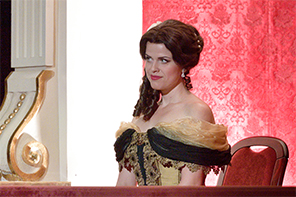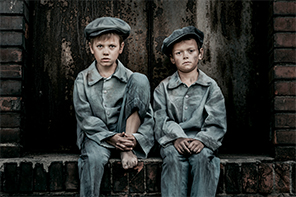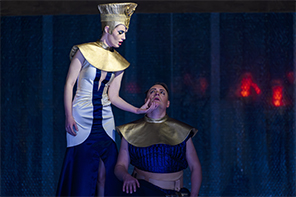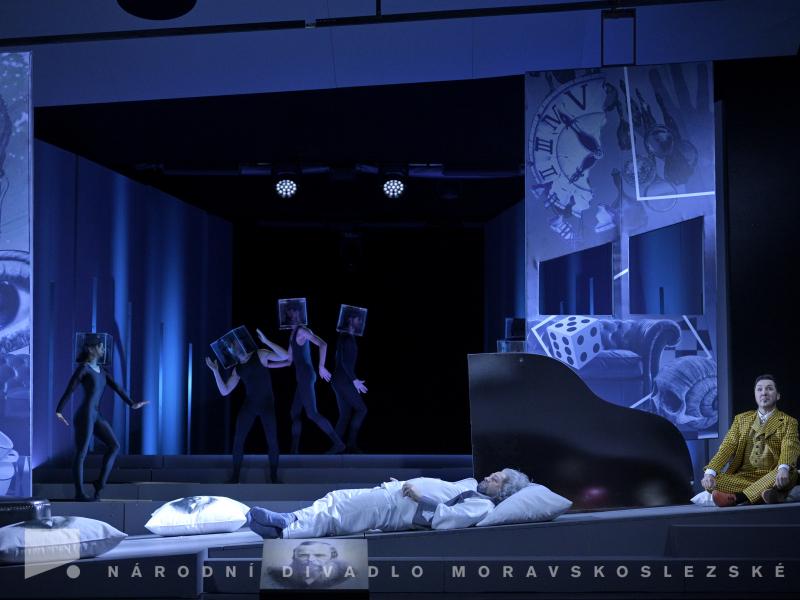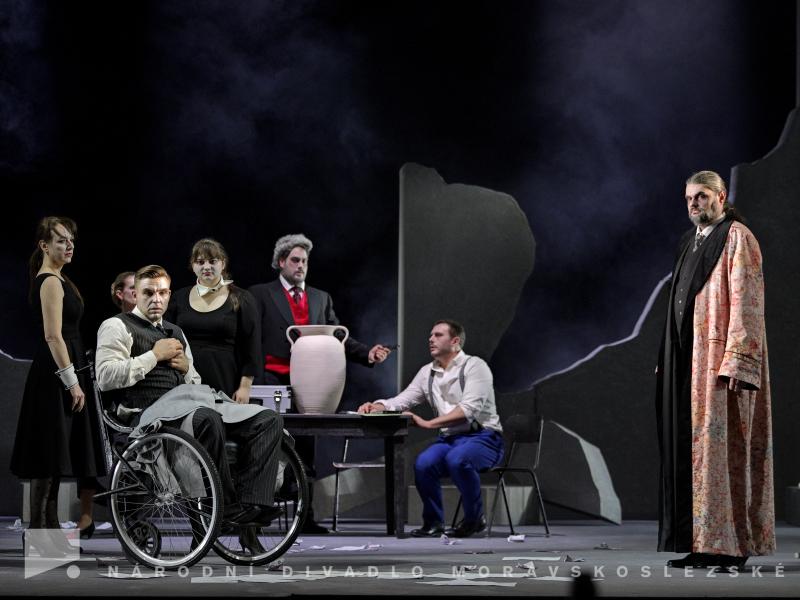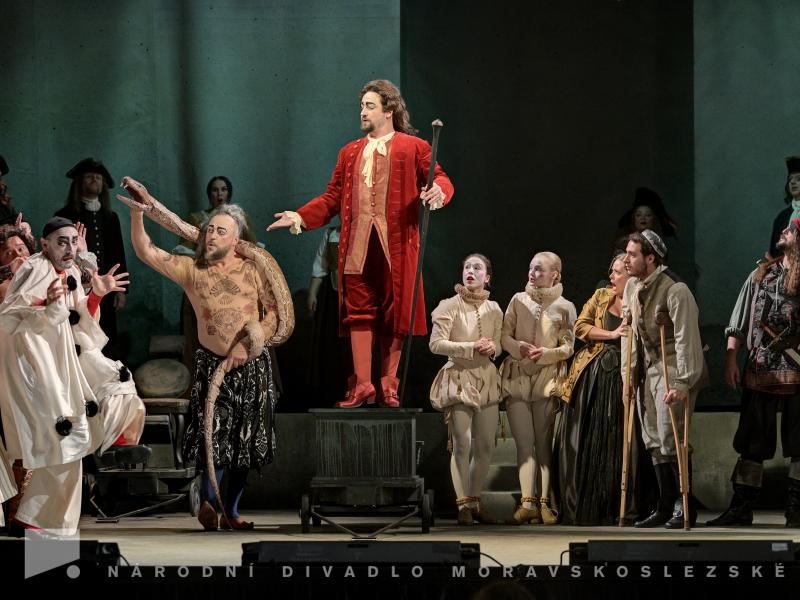TEREZÍN OPERA CYCLE
The opera company of the National Moravian-Silesian Theatre presents a special dramaturgical series titled Terezín Opera Cycle. This project showcases the works of three extraordinary composers—Hans Krása, Viktor Ullmann, and Pavel Haas—who were integral to the interwar Czechoslovak music scene. All three perished in the Holocaust due to their Jewish heritage. Their operas, many of which were composed or performed in the Terezín ghetto, stand as powerful artistic testaments to resilience, innovation, and the tragic loss of an entire generation of musical talent. This series seeks to revive their legacy and restore their rightful place in the operatic canon.
We opened the cycle with a production of Hans Krása’s opera BETROTHAL IN A DREAM. The premiere took place on February 17 2022 at the Antonín Dvořák Theatre. This was the first time the opera had ever been staged at the National Moravian-Silesian Theatre. The production was -produced with the National Theatre in Prague as part of the Musica non grata project, supported by the Embassy of the Federal Republic of Germany in Prague.
Among the three composers, it was Viktor Ullmann who was truly a man of the theatre. In 2023, we presented two of the three surviving operas by this native of Český Těšín—his one-act operas THE BROKEN JUG (Der zerbrochene Krug) from 1942 and THE EMPEROR OF ATLANTIS, OR THE REFUSAL OF DEATH (Der Kaiser von Atlantis oder Die Tod-Verweigerung) from 1942. Both works were written during the war years, with the latter composed directly in the Terezín ghetto. The premiere took place on February 16, 2023, at the Antonín Dvořák Theatre.
Jiří Nekvasil, Intendant of the National Moravian-Silesian Theatre, reflects on the tragic fate of three remarkable composers whose lives and careers were brutally cut short by World War II:
"We are gradually presenting the operatic works of three composers from the interwar period, whose lives were mercilessly disrupted by the war. Because of their Jewish origin, they were reduced to second-class citizens in the Protectorate of Bohemia and Moravia. First, they were stripped of most of their civil rights, then deported to the Nazi-established Jewish ghetto in Terezín, and finally sent to Auschwitz as part of the ‘Final Solution.’ All three—Hans Krása (1899–1944), Viktor Ullmann (1898–1944), and Pavel Haas (1899–1944)—met a tragic end. On 16 October 1944, they were transported from the Terezín ghetto to the Auschwitz II-Birkenau concentration camp. Upon arrival, they were immediately sent to their deaths, most likely murdered in the gas chamber on 17 October. The Nazis not only sought to annihilate them physically but also to erase their music from history. And even after the war, the communist totalitarian regime in Czechoslovakia largely ignored their legacy. It was only after the fall of communism in 1989 that their works and their names began to return to our cultural consciousness. We are staging the operas of Krása, Ullmann, and Haas, first and foremost, because of their undeniable artistic quality. These are extraordinary contributions to Czech operatic creation from the first half of the 20th century. But we are also doing so as a small act of restitution—a recognition of past injustices. Through these performances, we acknowledge and celebrate the diverse cultural tapestry of interwar Czechoslovakia, a richness that was systematically destroyed by two successive totalitarian regimes: first by the Nazis and then by the communists, who condemned these composers to death and near-total oblivion.

